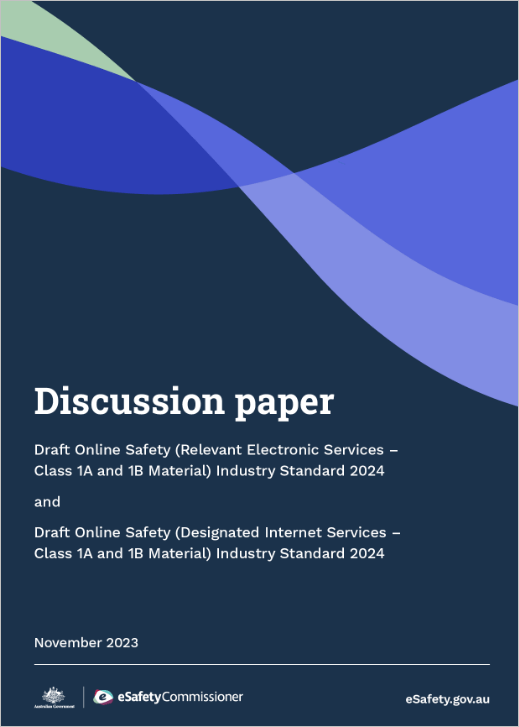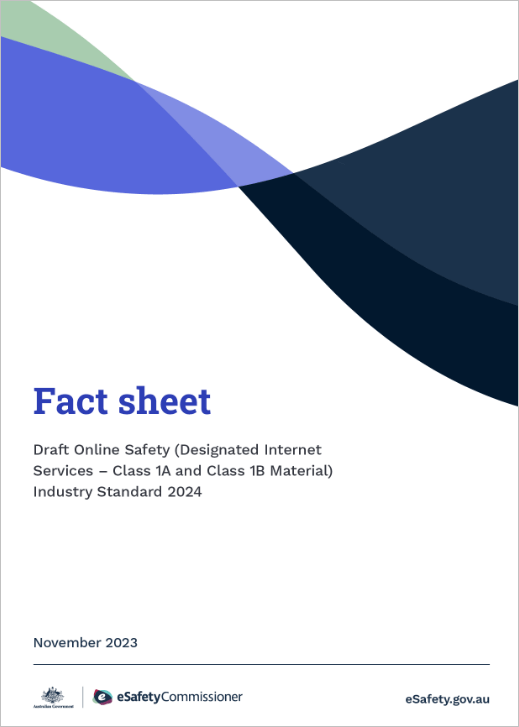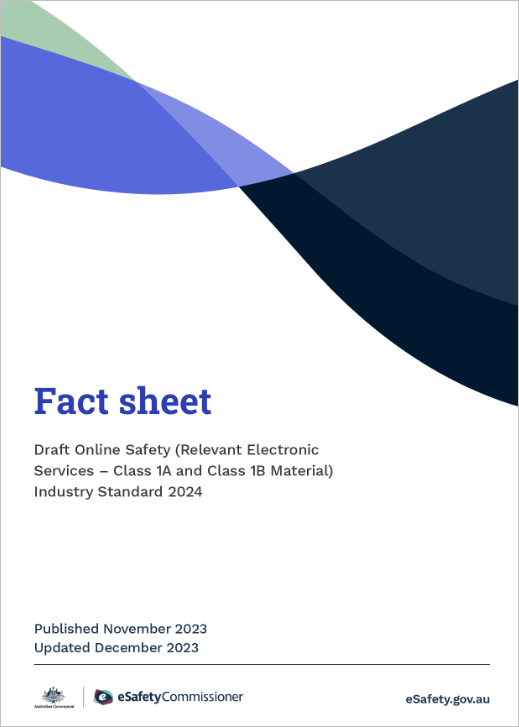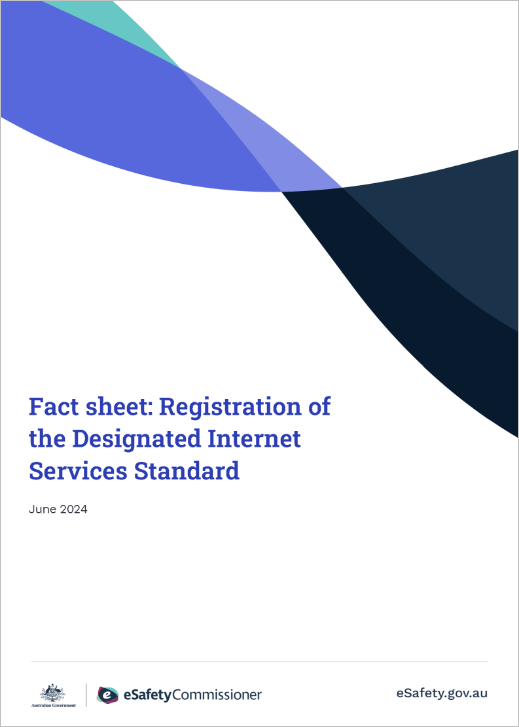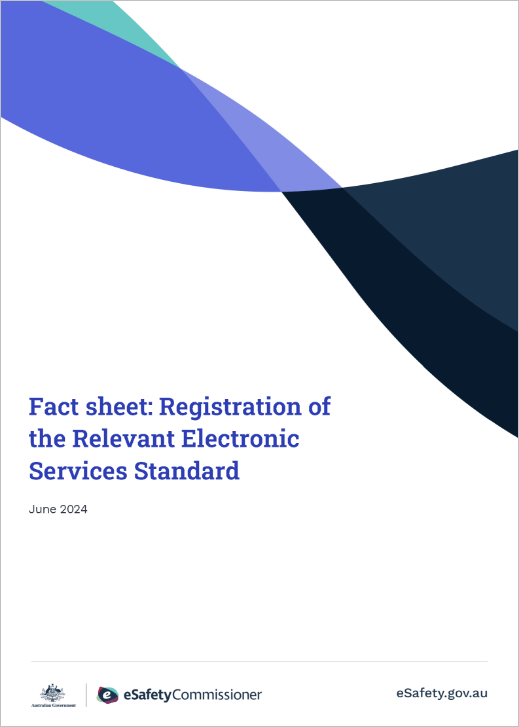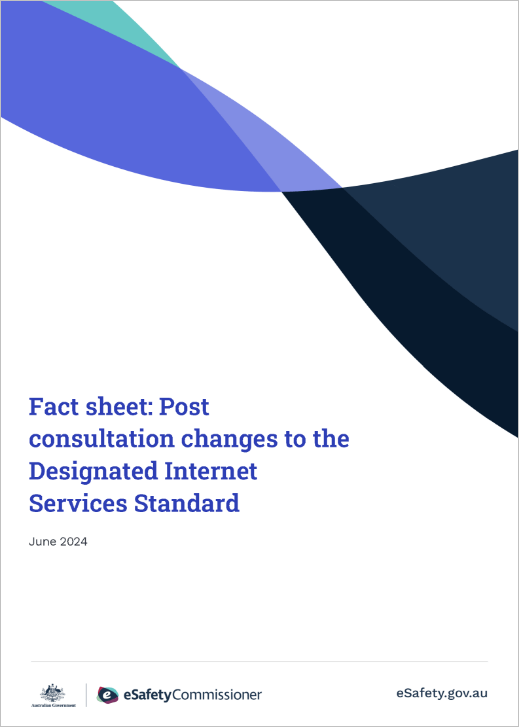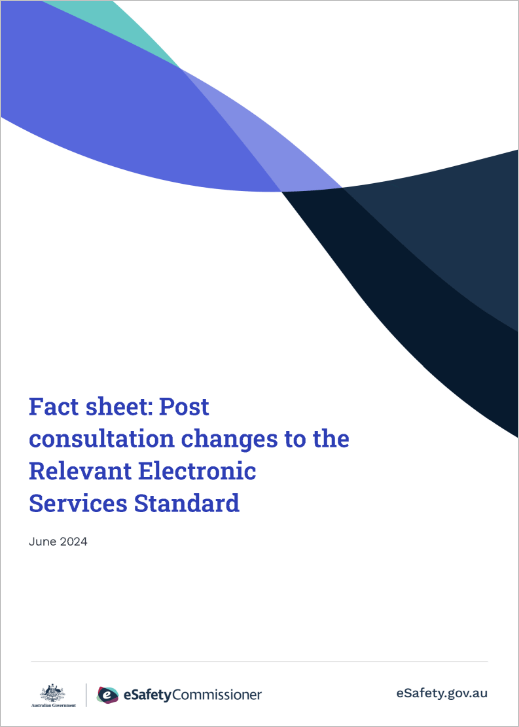Background to the Unlawful Material Standards
The Unlawful Material Standards operate alongside the Unlawful Material Codes that focus on class 1A and class 1B material, including child sexual exploitation material and terrorist material.
On this page:
The start of the Unlawful Material Standards development
The Unlawful Material Standards were initially known as the ‘Phase 1 Industry Standards’. This name related to how they were developed.
The Online Safety Act, which commenced on 23 January 2022, provides for industry bodies to develop new codes to regulate ‘class 1’ and ‘class 2’ illegal and restricted online material, and for eSafety to register codes if they meet the statutory requirements. If a code does not meet the requirements, then eSafety can develop an online safety standard for that section of the online industry instead.
The industry bodies tasked with developing the codes adopted a two-phase approach, as suggested in eSafety’s position paper. The paper set out 11 policy positions regarding the substance, design, development and administration of industry codes for class 1 and class 2 material, as well as eSafety’s preferred outcomes-based model for the codes
It recommended the industry prioritise efforts to prevent and reduce the most seriously harmful types of ‘class 1’ illegal material in a first phase (followed by a second phase focused on limiting access to restricted material).
The development of the Relevant Electronic Services Standard (Unlawful Material) and the Designated Internet Services Standard (Unlawful Material) by eSafety followed the decision of the eSafety Commissioner in May 2023 to decline to register industry drafted online safety codes for these online sectors.
Six online safety codes, covering other industry sectors, were registered by eSafety in 2023 as those codes were found to provide appropriate community safeguards in relation to class 1A and 1B material.
You can read more information about the development and registration of the codes.
Submissions process
In November 2023 the eSafety Commissioner invited submissions from industry, other stakeholders and the public on the draft standards.
A plain language discussion paper was released, outlining eSafety’s overarching approach and including questions to assist stakeholders to identify and respond to key issues. We also prepared a fact sheet for each standard, setting out eSafety’s position in response to key questions.
All stakeholders were encouraged to review the discussion paper and the fact sheets prior to making a submission.
The questions in the discussion paper were provided as a guide only and were not intended to limit the scope of submissions. eSafety requested that submitters provided reasons to support any views expressed. Practical examples, research and other evidence was also welcomed.
Targeted consultation
In addition to the written submission process, eSafety held two roundtable discussions in December 2023. These sessions provided stakeholders the opportunity to share their perspectives with eSafety and with each other.
The first consultation included representatives from industry associations and service providers from the two industry sections. The second involved stakeholders from different civil society organisations and academics.
eSafety thanks participants for their time and thoughtful contributions to the workshop. The discussion was an important contribution to informing the development of the draft standards.
The following deidentified summaries represent high-level feedback provided by participants during the sessions, and summarises the feedback into themes. The views and opinions in these summaries are those of the participants and do not reflect eSafety’s position.
Publication of submissions
The 51 written submissions received by eSafety on the draft standards are published on this page.
eSafety closely considered the submissions received and the amendments that should be made, including amendments in order to provide greater certainty to both industry participants and end-users. For more context, please see our media statement on the publication of these submissions.
The published submissions have been redacted to remove personal or sensitive information (such as physical addresses, telephone numbers and email addresses). Information that a stakeholder has clearly identified as confidential where eSafety has accepted their confidentiality claim has also been redacted.
The views and opinions in the submissions are those of the stakeholders and do not reflect eSafety’s position.
Submissions
Post-consultation and registration of the Unlawful Material Standards
These fact sheets outline the obligations on industry and how the final standards addressed feedback raised by stakeholders during the public consultation. The Online Safety Codes and Standards Regulatory Guidance is available on the Regulatory guidance page.
Renaming of the first phase of standards
The standards covering class 1A and 1B material were renamed ‘Unlawful Material Standards’, along with the first phase of codes, now known as the ‘Unlawful Material Codes’. Together, they are known as the ‘Unlawful Material Codes and Standards’.
This was to clearly distinguish it from codes developed under the second phase which are now called ‘Age-Restricted Material Codes’.
Last updated: 04/12/2025
